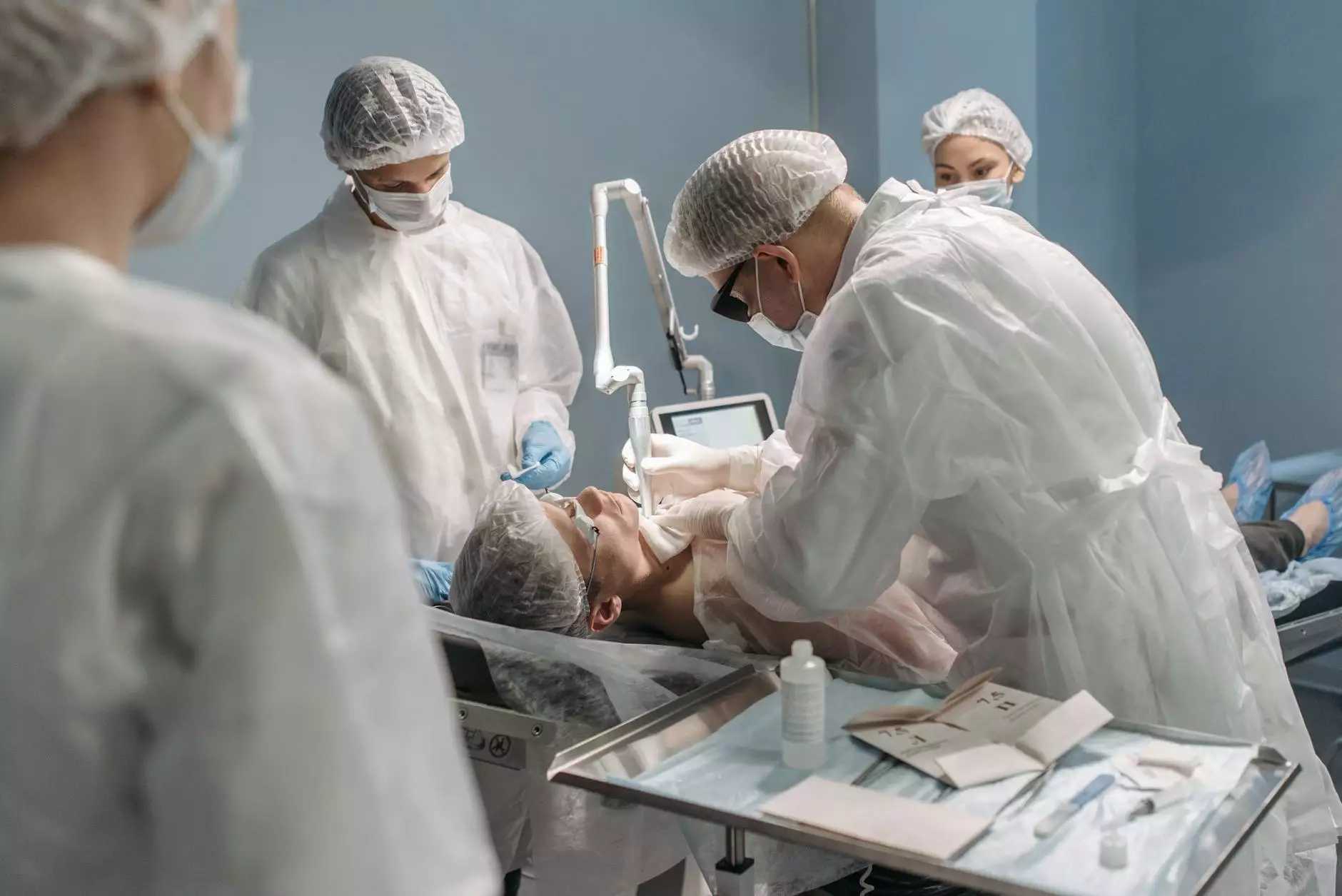Understanding Jaw Realignment Surgery Cost

When it comes to dental and orthodontic health, jaw realignment surgery plays a crucial role for many individuals suffering from misalignment issues. This surgical procedure is not only designed to enhance oral functionality but also to improve overall aesthetics and quality of life. In this extensive guide, we will delve deep into the costs associated with jaw realignment surgery and the various factors that can influence this expenditure.
What is Jaw Realignment Surgery?
Jaw realignment surgery, also known as orthognathic surgery, is a surgical procedure to reposition the jaw for optimal alignment. This kind of surgery is typically performed on patients who experience difficulties in chewing, speaking, or breathing due to jaw misalignments (malocclusions). The significance of this surgery goes beyond mere appearance; it addresses functional impairments that can lead to further dental issues and discomfort.
Why Undergo Jaw Realignment Surgery?
There are several compelling reasons to consider jaw realignment surgery, including:
- Improved Functionality: Adjusting the jaw can significantly enhance chewing efficiency and resolve major oral health issues.
- Enhancement of Aesthetic Appearance: A properly aligned jaw can improve facial symmetry and boost self-confidence.
- Relief from Pain: Patients suffering from chronic headaches and jaw pain related to misalignment often find relief through these procedures.
- Correction of Bite Issues: The surgery can correct overbites, underbites, and crossbites, leading to a healthy bite relationship.
Factors Influencing Jaw Realignment Surgery Cost
The cost of jaw realignment surgery can vary widely based on several factors, including but not limited to:
1. Type of Surgery
There are different techniques used in jaw realignment, including bimaxillary surgery, mandibular osteotomy, and maxillofacial surgery. Each type has a different complexity and associated costs.
2. Geographic Location
The cost of living in a particular area greatly affects healthcare pricing. Urban areas typically have higher surgery costs compared to rural locations.
3. Surgeon’s Expertise
The experience and reputation of the surgeon will also play a critical role in the overall cost. Highly experienced surgeons may charge a premium for their services.
4. Anesthesia and Hospital Fees
Costs associated with anesthesia and hospital facilities can significantly add to the overall jaw realignment surgery cost. The type of anesthesia required (general vs. local) and the duration of the hospital stay will impact the price.
5. Preoperative and Postoperative Care
Preoperative evaluations, consultations, and follow-up visits can contribute to the overall cost. These may include X-rays, models, and other diagnostic tools necessary for planning the surgery.
Average Costs of Jaw Realignment Surgery
The average cost of jaw realignment surgery can range considerably based on the factors outlined above. Generally, patients can expect to pay between $20,000 to $40,000 for the surgery. Here’s a breakdown of potential costs:
- Consultation Fees: $200 - $600
- Surgical Fees: $15,000 - $30,000
- Anesthesia Costs: $1,000 - $2,000
- Hospitalization Costs: $2,000 - $10,000
- Postoperative Visits: $200 - $500 per visit
Insurance Coverage for Jaw Realignment Surgery
Many insurance plans cover jaw realignment surgery, especially if it is deemed medically necessary. Patients should contact their insurance providers to ascertain coverage specifics and any out-of-pocket expenses they might incur. Essential steps include:
- Verification of Coverage: Check if the procedure is covered under your policy.
- Pre-approval: Obtaining pre-approval may be necessary for some insurance companies.
- Documentation: Provide necessary documentation and medical necessity letters from your healthcare provider.
Financing Options for Jaw Realignment Surgery
For many, jaw realignment surgery can be a significant financial burden. However, there are several financing options available:
- Payment Plans: Many clinics offer in-house financing plans that allow patients to pay for the surgery over time.
- Medical Credit Cards: Specialized medical credit services can offer low-interest financing options for healthcare procedures.
- Personal Loans: Some patients opt for personal loans to spread out the costs associated with surgery.
Potential Savings for Patients
While the costs of jaw realignment surgery can be high, patients can explore various avenues for savings:
1. Comparing Surgeons
It is beneficial to get quotes from multiple board-certified surgeons. This helps in understanding the market rate and can lead to significant savings.
2. Benefits of Bundled Services
Some medical centers, like MediGlobus, provide bundled services, including the surgery, hospital stay, and follow-up care at a reduced rate.
3. Seeking Out-of-Network Benefits
Investigating your insurance's out-of-network benefits may open opportunities for lower costs, even if it’s with a non-participating provider.
Conclusion
Understanding the jaw realignment surgery cost is crucial for individuals considering this vital procedure. By being informed about the factors influencing the cost, patients can make educated decisions tailored to their financial capabilities. The benefits of jaw realignment surgery, both functional and aesthetic, serve to enhance the lives of many individuals. For those interested in learning more about this procedure or seeking expert guidance, connecting with a reputable surgical center like MediGlobus is an excellent starting point to ensure a knowledgeable and supportive journey towards a healthier smile.









